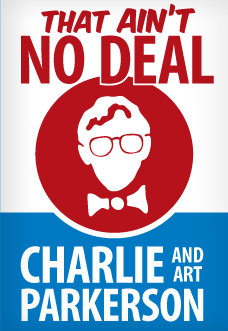From the book “That Ain’t No Deal!” by Charlie Parkerson:
 Simply showing up may be enough to squeak by, but you don’t want to do the minimum. You need to show up ready. As the Boy Scouts say, “Be prepared.”
Simply showing up may be enough to squeak by, but you don’t want to do the minimum. You need to show up ready. As the Boy Scouts say, “Be prepared.”
It’s not easy to plan ahead, to prepare, to study. It’s not easy to concentrate, but anybody can do it.
In college sports, there are rules about how often teams can practice, but in real life there’s no penalty for preparing more than the competition does.
The thing I love about studying is it helps the dummy more than the genius, because smart people don’t think they need to study. With preparation, a hard worker of average intelligence can outperform an Einstein any day.
“I shoulda said…”
Have you ever left an argument only to realize an hour later what you should have said? On the other hand, some people appear to be “quick on their feet.” Their responses to the unexpected are so swift that observers marvel, “How’d they do that?”
I think the difference is due more to preparation than intelligence. Snappy answers come automatically to those who have invested time studying, carefully thinking about the subject. They know at a glance what it is they are looking at and what they think about it. They don’t have to think about it because they’ve already done the thinking.
If you’re gifted with a fast wit, if you pick up on things with ease, if you are good at playing catch-up, then you should be very careful. Don’t let your natural ability fool you into thinking you don’t have to study up. I have served on boards and committees for various volunteer organizations and associations. Once, I was on the board of directors for a national association. All of us on the board were owners of pretty large, successful businesses. We were all top performers, dynamic leaders, effective managers. We knew how to get things done.
Or, that’s how it should have been. After a few meetings, I began to wonder if some of my fellow board members could even organize a picnic. Before every meeting, the association staff would send us a large binder stuffed with an agenda and tons of reports. I’d show up at the meeting, with my binder under my arm, my head full of knowledge as I’d flip through my highlighted notes…but only a few of us had even bothered to read the reports! It drove me crazy, but then, I guess I drove them insane too.
Don’t be the person who shows up without a clue. Study Up instead, and you’ll run circles around all the other clueless people.



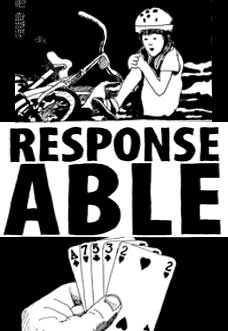
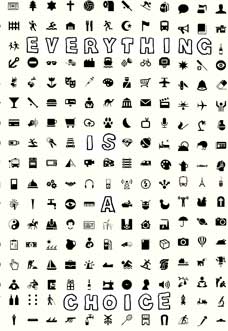
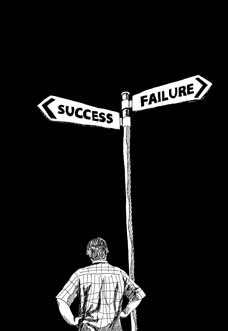 Just as true quality is never a happy accident, neither is success. Good things happen for a reason. Sure, sometimes you’ll get lucky and come out smelling like a rose despite making bad decisions, but that’s like winning the lottery.
Just as true quality is never a happy accident, neither is success. Good things happen for a reason. Sure, sometimes you’ll get lucky and come out smelling like a rose despite making bad decisions, but that’s like winning the lottery.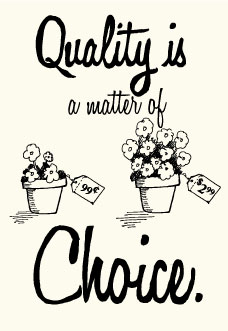 These six words express the heart of my business philosophy. That’s why I made them the motto for Lancaster Farms, the business I founded in 1969.
These six words express the heart of my business philosophy. That’s why I made them the motto for Lancaster Farms, the business I founded in 1969.